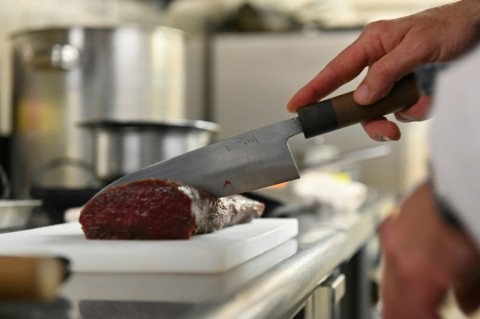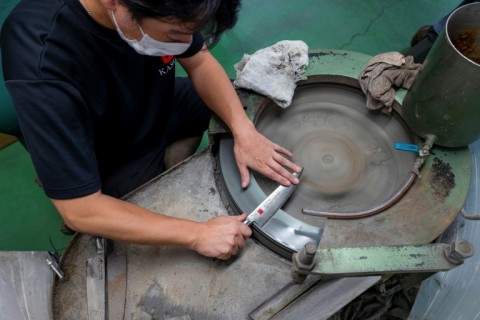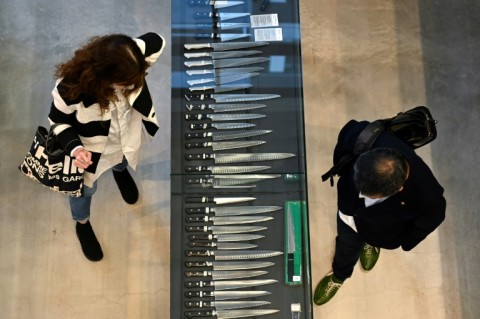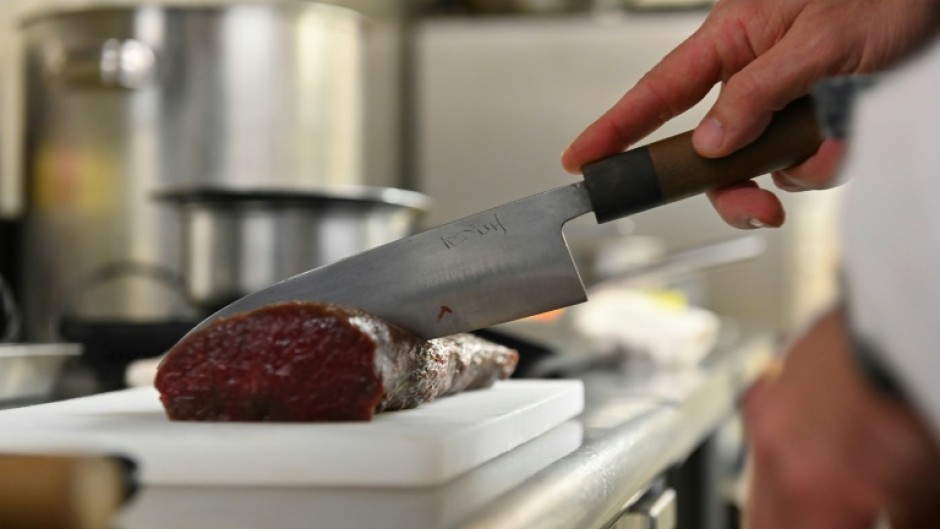
TOKYO - In a Japanese city once famous for forging samurai swords, craftsmen sharpen and polish kitchen knives, but even at full tilt their small factory can't keep up with global demand.
The export value of knives and other bladed tools like scissors hit a record high in Japan last year, partly thanks to a home-cooking boom sparked by the pandemic.
Japanese knives are also winning more converts among aspiring and professional chefs, who prize their delicate precision, sleek finish and long lifespan.
Katsumi Sumikama, head of Sumikama Cutlery in the central city of Seki, puts the popularity down to a "combination of technology and traditional craftsmanship".
To achieve the formidably sharp edge needed to make perfect sushi or cut precise slices of Wagyu beef, the company uses machines that guarantee accuracy to one-thousandth of a millimetre, then artisans finish the job by hand.
But even at full capacity, "we can't keep up", Sumikama told AFP.
"We're seeing demand stronger than pre-pandemic levels in all countries."

Despite their elegant appearance, Sumikara said he faced scepticism from both within and outside the company that his expensive knives would sell.
"We were trapped in the idea that Japanese products... would not be accepted by consumers unless they were cheaper than German products," he said.
But the line was a success and the company now sells their luxury knives in more than 50 countries.
The export value of kitchen bladed tools hit a record 12 billion yen ($90-million) in 2021, a 30 percent jump from around nine billion yen the previous year, according to Japan Customs.
French chef Olivier Oddos, whose Tokyo restaurant boasted a Michelin star between 2014 and 2021, has been a devotee for more than two decades.
Japanese kitchen knives now have a "truly worldwide" reputation, he told AFP in his restaurant's small kitchen.
"I know a lot of French chefs who have come to Japan, and every time they buy Japanese knives. Sometimes they even buy them for their whole team," he said.

Japanese knives have to be maintained regularly with sharpening stones, but "if you take good care of them, they have a pretty exceptional lifespan", Oddos said.
Daisuke Kumazawa owns Kama-Asa, a shop that has operated on Tokyo's famous Kappabashi kitchenware street for over a century.
He says Japanese knives have exploded in popularity overseas in the last decade along with a growing interest in Japanese food.
Chefs want quality blades to do "delicate work", he said.
The products are so popular that he opened a Paris branch four years ago.
But he has also noted a pandemic rise in interest.
"Probably because they were at home more often, more people wanted to take time to cook, and cook better," he said.

